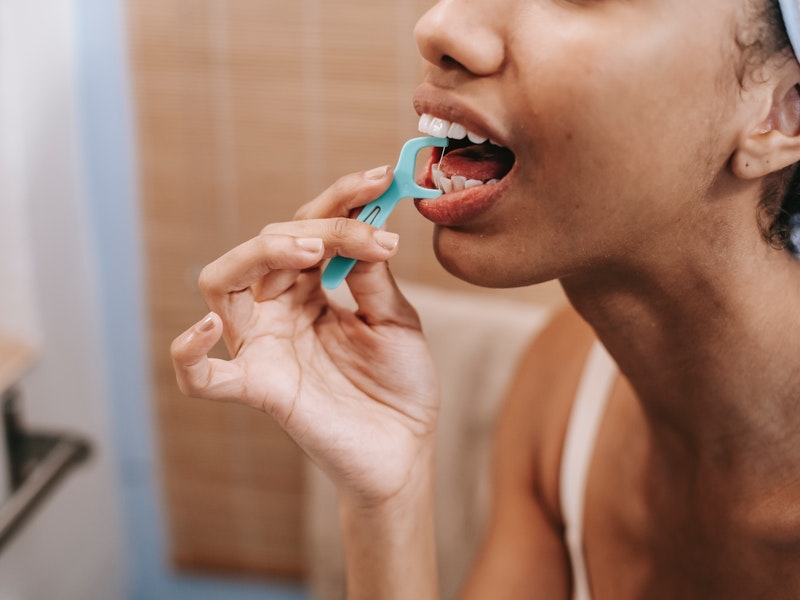7 Reasons Why You Should Floss Everyday

Good oral habits are necessary to maintain healthy teeth. It is also essential in reducing the likelihood of developing teeth-related diseases. Daily flossing is one effective habit that you should learn. Flossing is a simple but effective way to keep your teeth healthy by removing debris from those areas where toothbrushes can’t reach. Perhaps you are wondering how flossing can benefit you; this article describes some beneficial reasons why flossing should be part of your daily routine.
Flossing Prevents Tooth And Gum Decay
Tooth and gum decay is a severe dental disease that you should avoid. Plaque and debris can build up between the teeth, and when they decay, they provide a fertile breeding ground for microbes. Some of these microbes are harmful and cause gum decay. Flossing your teeth at least once a day can help you to avoid gum decay by removing plaque from deep areas. Proper flossing is estimated to remove about 80% of interdental debris. Experts recommend flossing after each meal, but you can start with flossing once a day, preferably before bed.
Flossing Improves Immunity
The immune system does a lot of work to keep the body safe from internal and external threats. While there are several ways to boost your immunity, regular flossing is one simple but effective way. The logic is simple; a reduction in microbial activity helps the immune system, and when you floss, you reduce the possibility of microbial growth in your teeth. Daily flossing provides an easy way to keep improving your immune system, so your body has one more minor issue to handle. What’s more? Several studies have linked certain microbial diseases to the microbes that grow on decayed gum. When you floss, you give your body a boost to avoid such conditions.
Flossing Prevents Gum Recession
Gum recession is the gradual eroding of the gum, leaving the lower parts of the teeth exposed. This is different from gum decay but is nearly as bad. When interdental plaque, tartar, and debris build up, the gum tissue may gradually erode until more parts of the teeth are exposed. The recession is caused by chemical reactions, brushing too hard, smoking, or poor oral health. Flossing helps prevent gum recession by removing plaques, so you don’t have to use a stiff brush on your teeth.
Flossing Freshens Breath
The mouth contains some microbes, which tend to increase when the mouth is shut for an extended period. There are many causes of bad breath, but the common cause is food particle decay and microbial activity in the mouth. You can prevent bad breath and freshen your breath by flossing. Flossing removes plaques that may decay, release bad breath, and reduce microbial growth. To freshen your breath, you should visit a dentist in central London.
Flossing Maintains Oral Health And Dental Restorations
If you get a dental procedure, you should maintain your oral health or dental restorations. Dental procedures have a lifespan, but you can take specific steps to ensure they last for long, so you don’t have to redo the procedure. If you are unsure about any dental procedure or have dental issues, you should contact a dentist in central London, such as Covent Garden Dental Spa. You can find out more about them via https://www.coventgardendentalspa.co.uk/.
Flossing May Help Certain Diseases And Conditions
Several scientific studies have linked oral health to arthritis, diabetes, cardiovascular disease, and stroke. Scientists are still working to unravel more, but it is safe to say that good oral hygiene may improve certain disease conditions. Researchers have found an association between poor oral health and CVD. Studies also suggest that people with diabetes with good oral hygiene have slightly better sugar levels.
Flossing Reduces Dental Expenses
Flossing can help reduce your dental expenses over a long period. Flossing keeps the teeth healthy and healthy teeth may translate to lower dental bills as the years roll by. Since you can do flossing at home, you could also save some money on visiting your dentist to get flossing. It’s a win-win situation for you.
How To Floss Properly
Flossing should be done correctly to enjoy maximum benefits. Although the procedure is straightforward, many people often miss the vital aspect and don’t do it right. Here’s how to floss properly:
- Use standard dental floss if you can. The length is around 18 inches. Wrap most floss around your middle finger on one hand and the other end on your other middle finger.
- Hold the floss firmly between your thumb and forefinger and gently slide it between your teeth until you touch your gum.
- Use a firm but gentle C motion to move the floss around.
- Repeat the process for your teeth.
- You can also gargle to improve the benefits of flossing.
Stop and visit your dentist if you experience pain in your gums while flossing. If you have tender gums, pause flossing until the tenderness stops.





